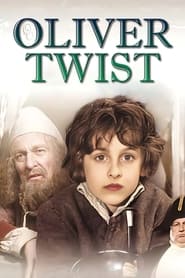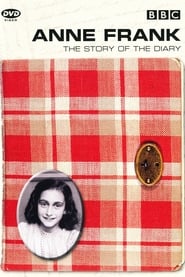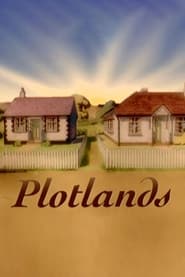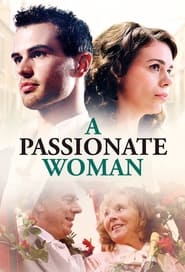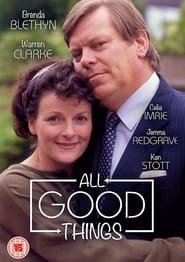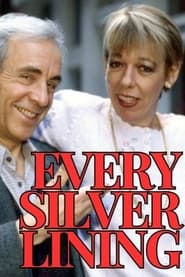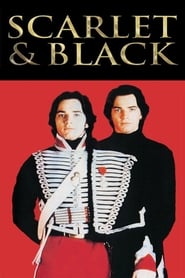Bbc One TV Series - Page 67
-
Oliver Twist
1985
star 5.6Oliver Twist is a 1985 BBC TV serial. It was directed by Gareth Davies, and adapted by Alexander Baron from the novel by Charles Dickens. It follows the book more closely than any of the other film adaptions. -
The Diary of Anne Frank
1987
star 7The Diary of Anne Frank is 1987 BBC televised miniseries. It was based on The Diary of a Young Girl by Anne Frank, and it starred Elizabeth Bell, Janet Amsbury, Katharine Schlesinger and Emrys James. -
Plotlands
1997
Plotlands
1997
Sold a small plot of land for a tiny outlay, Cockney widow Chloe Marsh and her two daughters flee the slums of post-war London for a better life in the country. But rural life in 1922 is hard. Chloe and her fellow pioneers have no mains water, no gas, no electricity, and no jobs. Forced to live in tents until they can afford a shack, they carve a community out of the hostile countryside. -
A Passionate Woman
2010
star 6.71950s period drama based on the true story of a housewife and mother whose life is turned upside down by a handsome Polish man at her local dance hall. -
Movie Connections
2007
Movie Connections
2007
Documentary series looking at the stories behind the production of popular English films, showing how they tie in with the production of other movies through the actors or actresses. -
All Good Things
1991
All Good Things
1991
A marriage and home can be made complete with the arrival of a new baby, but Shirley Frame feels a need to share her good fortune by going out into the world and helping others - driving husband Phil up the wall. -
The Railway Children
1957
The Railway Children
1957
A serial in eight parts adapted for television from the book by E. Nesbit. -
Every Silver Lining
1993
star 6Nat Silver (Andrew Sachs) and his wife Shirley (Frances De La Tour) run a cafe, the Silver Diner in the East End of London. With the help of their daughter Lorraine (Sarah Malin) and waiters Dean (Danny Swanson) and Willie (Oscar Quitak), the Silvers struggle to make a living. -
David Copperfield
1966
star 5David Copperfield is a BBC television serial starring Ian McKellen in the title role of the adaptation of Charles Dickens's novel that began airing in January 1966. It also featured Tina Packer as Dora, Flora Robson as Betsey Trotwood, Gordon Gostelow as Barkis, and Christopher Guard as young David. The screenplay adaptation was written by Vincent Tilsley. -
The Befrienders
1972
The Befrienders
1972
The Befrienders is a British television series produced by the BBC in 1972. The series dealt with the work of the Samaritans organisation, and the individual cases its staff came across. The leading cast members were Megs Jenkins and Michael Culver. The Befrienders was first aired as a single play as part of the Drama Playhouse strand in 1970, which was followed by one series of eleven episodes. -
The Answer Run
2024
The Answer Run
2024
Comedian Jason Manford hosts an exciting brand new fast-paced quiz show, where three couples face a series of 50/50 questions which hurtle The Answer Run down towards them. -
Making the Most of the Micro
1983
star 7Making the Most of the Micro was a TV series broadcast in 1983 as part of the BBC's Computer Literacy Project. It followed the earlier series The Computer Programme. Unlike its predecessor, Making the Most of the Micro delved somewhat deeper into the technicalities and uses that microcomputers could be put to, once again mainly using the BBC Micro in the studio for demonstration purposes. The series was followed by Micro Live. -
Wild UK
2017
Wild UK
2017
Lucy Cooke and Colin Stafford-Johnson explore the wilderness of the UK to reveal the wildlife that thrives there. -
Walliams & Friend
2016
star 5.2Comedy series in which David Walliams is joined by a different guest in each episode for a variety of sketches, alongside a talented supporting cast. -
Scarlet and Black
1993
star 6.3An ambitious young man seduces women of high social standing in order to improve his prospects. -
See How They Run
1999
star 6Six-part thriller about a family in the Witness protection program which is uprooted from a small village in Northern England and transported to Sydney. -
Mr Loverman
2024
star 8.2Londoner Barrington Jedidiah Walker, Barry to his mates, is a seventy-four-year-old, Antiguan-born, exuberant Hackney personality, renowned for his dapper taste and fondness for retro suits. Carmel, his wife of 50 years, senses that Barry has been cheating on her with other women. Little does she know what’s happening: a secret, passionate affair with his male best friend and soulmate, Morris. Now facing the final chapter of his life, Barry has big choices that will force his whole family to question their futures. -
The Crust
2005
The Crust
2005
The Crust is a British television series about a pizza parlour which was originally shown by CBBC. -
Around the World in 80 Days
2009
Around the World in 80 Days is a British travel documentary series made to support the annual BBC Children in Need charity appeal in 2009. It sees twelve celebrities attempt to circumnavigate the globe in eighty days without using air transport, recreating the journey of Phileas Fogg and Michael Palin. Like Fogg and Palin, the journey begins and ends at the Reform Club in London. It was first shown on BBC One and BBC HD in October and November 2009. -
Dodgem
1991
Dodgem
1991
Simon Leighton is sent to an assessment centre because he is unable to cope with school due to problems in his life – his mother is dead and his father cannot overcome his grief. However Simon is determined to leave the centre to live with his father.
